Fortress Press Preaching and Worship Collection (7 vols.)
Digital Logos Edition
Overview
The Fortress Press Preaching and Worship Collection presents seven volumes on various aspects of the church service, including Christian liturgy, homiletical preaching, and congregational worship. It provides church leaders the tools to transform their preaching and worship service.
The collection illustrates the positive impact Christian ritual has on spiritual growth, studies ways Christians can deeply and richly engage liturgy, and emphasizes the importance of preaching on ecological stewardship, death, and hope. It includes a volume on preaching the six major Christian festivals (Christmas, Epiphany, Easter, Ascension, Pentecost, and Holy Trinity), a handbook on Christian liturgy’s history, development, theology, and sacramental rites, and a volume on the development of the New Homiletic movement.
The Logos edition of these masterful works on preaching and worship is fully searchable and easily accessible. Scripture passages link directly to your English translations and to the original language texts, and important theological concepts link to dictionaries, encyclopedias, and the wealth of resources in your digital library.

Key Features
- Contains introductions to Christian liturgy, the New Homiletic movement, and Christian festivals
- Encourages pastors and church leaders to study and apply different preaching and liturgical strategies to their church service
- Addresses ways pastors can approach preaching oft-neglected topics like death and ecological stewardship
Product Details
- Title: Fortress Press Preaching and Worship Collection
- Publisher: Fortress Press
- Volumes: 7
- Pages: 1,384
Individual Titles
- Caring Liturgies: The Pastoral Power of Christian Ritual by Susan Marie Smith
- Dem Dry Bones: Preaching, Death, and Hope by Luke A. Powery
- Holy Conversation: Spirituality for Worship by Jonathan Linman
- Introduction to Christian Liturgy by Frank C. Senn
- Proclamation and Celebration: Preaching on Christmas, Easter, and Other Festivals by Susan K. Hedahl
- The Renewed Homiletic edited by O. Wesley Allen Jr.
- The Season of Creation: A Preaching Commentary edited by David Rhoads, H. Paul Santmire, and Norman C. Habel
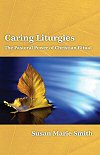
Caregiving practices in churches often center around listening and giving counsel, making referrals, and creating support groups for specific needs. In Caring Liturgies, Susan Marie Smith proposes that Christian ritual is both a method and a means for helping people through liminal times of transition and uncertainty, even vulnerability and fear. It teaches readers to recognize the ritual needs of fellow Christians and thus create post-baptismal rites of passage and healing that might strengthen and support them in the fulfillment of their ministries.
The book extends the usefulness of denominational “occasional services” books and other resources by suggesting ways to build a rite around a central symbolic action, pointing out issues of ritual honesty and ethics, and identifying skills and attributes necessary to preparing and leading a rite. Numerous narrative examples help to flesh out the principles and illustrate the key argument: that rituals are necessary means to enable human growth and maturity, both through times of suffering and times of transition, and that ritual-making leaders are central to the ongoing health of the church.
Susan Smith’s creative thinking and academic rigor are balanced by her practical pastoral applications to real life challenges of change and transition. Caring Liturgies deals with life’s ambiguities and paradoxes well, offering astute pastoral wisdom and clear theological insight in a practical manner. Presenting the idea of ritual as a powerful symbolic expression of liberation and healing, Smith patiently leads the reader through the necessary stages of curiosity and questioning of this methodology to acceptance of this traditional wisdom. I wholeheartedly recommend this book to anyone who yearns for a creative, liberating expression of one’s faith in times of turmoil.
—Jim Clarke, director of spiritual formation, St. John’s Seminary, Camarillo, CA
Susan Smith skillfully weaves together her pastoral experiences and scholarly knowledge to provide students, pastors, and lay leaders an excellent resource for their work as caregivers and creators and leaders of caring liturgies. With Caring Liturgies, Susan Smith has provided communities and their leaders with useful strategies for creating rites that cultivate spiritual growth in times of transition. Her book brings to light through their rituals, caring communities birth hope in the midst of despair and life in the midst of death.
—Jill Crainshaw, professor of worship and liturgical theology, Wake Forest University
Susan Marie Smith, an Episcopal priest and teacher of liturgy, ritual, and preaching, is rector of St. Alban’s Episcopal Church in Bexley, Ohio. She received her PhD in liturgy and ritual at the Church Divinity School of the Pacific, Berkeley, and is author of Christian Ritualizing and the Baptismal Process: Liturgical Explorations toward a Realized Baptismal Ecclesiology.
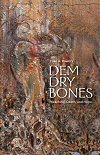
In an age when the so-called prosperity gospel holds sway in many Christian communities or the good news of Christ is reduced to feel-good bromides, it would seem that death has little place in contemporary preaching. Embracing the vision of the valley of dry bones in Ezekiel 37 as a metaphor for preaching in the Spirit, acclaimed homiletician Luke Powery asserts that death is the context for all preaching. In fact, the Spirit leads preachers to the context of death each Sunday in order to proclaim a word of life that ultimately breathes hope into people’s lives. Yet many preachers avoid death because they are at a loss of what to say about it and do not realize its vital connection to the substance of Christian hope. As a result the church is too often left with sermons that are fundamentally devoid of hope.
Dem Dry Bones aims to remedy some of the theological and homiletical shortcomings in contemporary preaching by looking closely at the African American spirituals tradition. Through this study, Powery demonstrates how to preach in the Spirit so that proclaiming death becomes an avenue toward hope. In short: no death, no hope.
Luke Powery integrates close readings of prophetic literature and the spirituals, and makes a major contribution to our understanding of the interrelationship of music and homiletics. He attends carefully not only to the words of the spirituals but to their musical idiom and affect, thus deepening the conversation that needs to go on between music and theology. Through the course of his discussion Powery illuminates the relationship between death and hope in ways that resonate with the depths of the Gospel. An important book for all who are interested in the intersections of preaching, music, and theology.
—Thomas H. Troeger, J. Edward and Ruth Cox Lantz Professor of Christian Communication, Yale Divinity School
Like a master artisan at a kiln firing pottery, and like the majestic prophetic voices of old, Luke Powery, as scholar and homileticist signals an artistic, engaging clarion call reminding us of the importance of authentic preaching which must help congregants and the world reckon with death and the daily death-dealing enterprises (personal, societal, natural meteorological events). Dem Dry Bones: Preaching, Death, and Hope engages African American spirituals and Ezekiel three’s infamous ‘valley of the dry bones’ as metaphor to problematize contemporary preaching, amidst life’s paradoxes and chaos, critiquing prosperity gospel messages that fail to deal with death; without such heightened awareness and preaching, Powery notes that the faithful cannot know resurrection hope. This is a must read for those who tarry with the God’s people, particularly those in faith communities, as they make their way from birth to death on earth, towards eternal life.
—Cheryl A. Kirk-Duggan, professor of theology and ethics, Shaw University Divinity School
Powery provides a powerful contextual counter narrative to contemporary prosperity preaching by resurrecting the social historical synergy of death and hope in the lived experience of the faithful. Dem Dry Bones should be required reading in seminaries and churches as a tool for recovery of effective, life affirming preaching.
—Teresa L. Fry Brown, professor of homiletics, Candler School of Theology
Luke A. Powery is dean of Duke Chapel at Duke University in Durham, NC. He previously served as the Perry and Georgia Engle Assistant Professor of Homiletics at Princeton Theological Seminary. He earned his MDiv from Princeton Seminary and his ThD through Emmanuel College, University of Toronto. A member of the Academy of Homiletics and the American Academy of Religion, he was nurtured in the Holiness-Pentecostal tradition, ordained by the Progressive National Baptist Convention, and has served in an ecumenical capacity in churches throughout Switzerland, Canada, and the United States. He is author of Spirit Speech: Lament and Celebration in Preaching and a contributor to the New Interpreter’s Bible Handbook of Preaching.
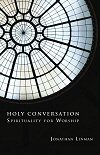
Despite widespread interest in spirituality, its most common corporate form, congregational worship, is rarely discussed in those terms. This book explores liturgical spirituality as a holy conversation between God and us.
Linking the themes of spirituality and worship and giving each needed focus in ways that are biblically and theologically rich and consistent with ecumenical traditions, this book specifically explores the relationship of sacred reading (lectio divina) to worship. Linman sees this practice as one element in the larger liturgical action of Gathering, Word, Meal, and Sending. Our “spiritual worship” (cf. Rom. 12:1), he argues, is the holy conversation between worshipers and the triune God who leads us to greater participation in Christ and to transformation through Christ’s presence.
Raising important issues for worship renewal and interspersed with practical insights and suggestions, this book serves as a primer for those who want to more fully learn how to worship, and, through the power of the Spirit, to deepen their awareness of the encounter with Christ made known in Word and Sacrament.
This is a book to be savored. By interpreting liturgy in light of the movements of lectio divina, Jonathan Linman offers a fresh approach to the dynamics of liturgy. Holy Conversation invites both those responsible for preparing for or leading worship and those yearning for a deeper spiritual experience in worship to listen and respond to the work of the Spirit and so to engage liturgy deeply and richly.
—Ruth Meyers, Hodges-Haynes Professor of Liturgics, Church Divinity School of the Pacific
This book beautifully embodies what it describes: attentive and reflective conversation with the reader about the ‘holy conversation’ that is liturgy. Liturgical theologians have focused on the meaning of liturgy’s deep structure or ordo; Linman presents a model for engaging the ordo and, in the process, richly redescribes the ordo itself. Holy Conversation is the next step in the study of liturgy.
—James W. Farwell, professor of religious studies and philosophy, Bethany College, West Virginia
The heart of any authentic Christian spirituality is the church’s liturgical life, the feast of Word and Sacrament. Linman opens the contemplative experience of liturgical worship in new and deeply faithful ways, inviting an encompassing, personal ‘holy conversation’ with the One who is life for the world. A great gift.
—Lisa E. Dahill, associate professor of worship and Christian spirituality, Trinity Lutheran Seminary
Jonathan Linman is Bishop’s Assistant for Formation in the Metro New York Synod of the ELCA and adjunct faculty at General Theological Seminary in New York City. He holds his doctorate from Duquesne University.
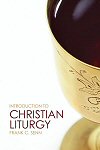
Designed as a general introduction to Christian liturgy, this book explores the meaning, history, and practice of worship in Eastern and Western, Catholic and Protestant traditions. Its chapters cover the theology of worship, the historical development of Eucharist and the Prayer Offices, the lectionary and customs of the church year, other sacramental rites, and the use of music and the arts. As such, it is a perfect textbook for students seeking to understand the basics of liturgical worship, as well as a reliable guide for worship leaders.
Written in the form of a handbook and designed with questions and answers for easy reference, Introduction to Christian Liturgy will help both novice and experienced worship leaders make informed decisions in their liturgical choices and practices.
In an appealing question and answer format, Senn has given us a catechism of worship that is simple, clear, and practical throughout, with his deep learning and his long experience as a parish pastor abundantly evident. The book is a treasure for all who care about Christian worship.
—Philip Pfatteicher, professor of English, East Stroudsburg University
Combining the skills of ecumenical scholar and experienced Lutheran pastor, Frank Senn has produced a wonderfully useful handbook for Christian liturgy. Pastors and students alike will benefit greatly from his careful and accessible survey of the tradition of Christian worship. The question and answer format should help readers to find needed information quickly.
—John Baldovin, professor of historical and liturgical theology, Boston College
Drawing upon his years of experience as a pastor of congregations and a teacher in graduate academic programs, Frank Senn has produced a liturgical primer—a ‘pastoral manual’—organized by theoretical and practical questions that shape the content of the book. The ecumenical range of the text, the consideration given to practices in local contexts, and the provision of learning aids, all make this a rich, accessible and helpful study book for classroom or personal use.
—Karen B. Westerfield Tucker, professor of worship, Boston University
Frank C. Senn is pastor of Immanuel Lutheran Church, Evanston, Illinois, and has served as president of both the Liturgical Conference and the North American Academy of Liturgy. He is author of many books, including Christian Liturgy: Catholic and Evangelical, New Creation: Elements of a Liturgical Worldview, and The People’s Work: A Social History of the Liturgy.
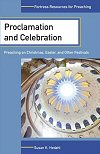
Proclamation and Celebration focuses homiletically on the six principal festivals of the church year: Christmas, Epiphany, Easter, Ascension, Pentecost, and Holy Trinity. Central to the complicated development of lectionaries over the centuries, these festivals have anchored the church year, primarily because they are specifically enunciated in biblical materials.
Susan Hedahl argues for the importance of viewing these festivals both as a unit and individually from a doctrinal perspective in light of the dynamic and theological expressions of God’s lively relationship with humanity. Exploring the possibilities in the biblical narratives that ground each festival, Hedahl helps the preacher create sermons that find joyous resonance in the liturgical, spiritual, ecumenical, theological, cultural, and educational activities of congregational life.
After an initial introduction to the festivals as a group, six chapters address each specific festival, describing the history, biblical texts, doctrines, cultural issues, and possibilities attendant on the festival. Throughout the book, Hedahl uses sermon excerpts by many preachers to illustrate strategies, choosing materials from a wide range of times, styles, and cultures.
By providing an engaging, accessible introduction to Christianity’s major festivals, Susan Hedahl invites preachers to mine the riches of festival proclamation in ways that celebrate the wonder, mystery, and grace of God. Here we encounter fresh possibilities for transformative preaching that are deeply rooted in Christian tradition. Every preacher who values the lectionary should read this book.
—Phil Snider, senior minister, Brentwood Christian Church, Springfield, Missouri
How can it be that preachers think they have nothing to add to the glorious good news at Christmas and Easter? Susan Hedahl challenges and encourages us to reflect upon the dramatic, lively doctrines that shape and inform our proclamations at the six major festivals of the church year. A return to doctrinal preaching will teach, will connect us with the cloud of witnesses who have gone before us, and will invite choice and action, not just ‘aesthetic appreciation.’ Hedahl’s approach will add depth and radical faith to festival sermons.
—Lucy Hogan, Hugh Latimer Elderice Professor of Preaching and Worship, Wesley Theological Seminary
Susan K. Hedahl, now retired, was the Herman G. Stuempfle Chair of Proclamation of the Word at Lutheran Theological Seminary at Gettysburg, where she had served since 1992. Ordained in the ELCA, she holds degrees from Luther Theological Seminary, St. John’s School of Theology in Collegeville, Minnesota, and the Graduate Theological Union, Berkeley. Her books include Listening Ministry and Who Do You Say That I Am? Preaching in the Twenty-First Century.
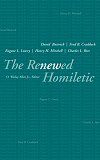
The major shift in the study and practice of preaching in the 1970s and 1980s, labeled the New Homiletic, turned toward the hearer. The purpose of preaching focused less on persuasion and more on transformation, less on asserting religious truths and more on offering an experience of the Gospel. Instead of viewing language as referential, its creative, evocative nature began to be emphasized. Thus homiletical strategies utilizing induction, celebration, story, narrative structures, and moves replaced a deductive, propositional approach to preaching.
Now three-and-a-half decades after this shift began, preachers recognize that the homiletical landscape has continued to evolve in ways that influence how preaching ought to be done—for example, the rise of postmodernity, the decline of the mainline church, cultural pluralism, and biblical and theological illiteracy.
Those considered to be the pillars of the New Homiletic—David Buttrick, Fred Craddock, Eugene Lowry, Henry Mitchell, and Charles Rice—discuss how to change their homiletical approach for a new day. Each of these distinguished scholars offers a lecture describing how his mind has changed, preaches a sermon reflecting these changes, and participates in a panel discussion with younger respondents.
The insights of the New Homiletic were too revolutionary to be allowed to slip, like hulls of abandoned ships, under the tidal waters of an advancing age. Now refurbished in this fine volume, they continue to interpret the nature of language, metaphor, and narrative so essential for biblical preaching in our postmodern era.
—Paul Scott Wilson, professor of homiletics, Emmanuel College, University of Toronto
That the future of our discipline is in good hands is evidenced . . . by the diverse group of smart and insightful colleagues in the homiletics guild assembled [here]. I rejoice in the wealth of their assessments and constructive offerings.
—Richard L. Eslinger, From the Afterword
O. Wesley Allen Jr. is associate professor of homiletics and worship at Lexington Theological Seminary. He is author of numerous books, including Determining the Form in the Elements of Preaching series, which he also edited.
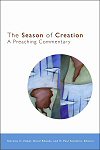
As the global climate crisis worsens, many churches have sought to respond by instituting a movement to observe a liturgical season of creation. Scholars who have pioneered the connections between biblical scholarship, ecological theology, liturgy, and homiletics provide here a comprehensive resource for preaching and leading worship in this new season. Included are theological and practical introductions to observance of the season, biblical texts for its 12 Sundays in the three-year lectionary cycle, and astute commentary to help preachers and worship leaders guide their congregations into deeper connection with our imperiled planet.
Here we see what worship can be like in a season devoted fully to creator and creation. Top notch biblical scholars have contributed commentaries to help church leaders to hear the voice of the Earth and the voice of the poor in the texts, in the sacraments, and in the practical experience of healing Earth. So timely and so inspiriting!
—Carol S. Robb, professor of Christian social ethics, San Francisco Theological Seminary, Graduate Theological Union
David Rhoads is emeritus professor of New Testament at Lutheran School of Theology in Chicago and the author of The Challenge of Diversity: The Witness of Paul and the Gospels and Reading Mark: Engaging the Gospel, and editor of From Every People and Nation: The Book of Revelation in Intercultural Perspective.
H. Paul Santmire is senior pastor of Trinity Lutheran Church in Akron, Ohio.
Norman C. Habel is professor of Hebrew Scriptures at Flinders University, Australia.
This title is included in the following collections
You can save when you purchase this product as part of a collection.
2025 Lutheran Portfolio
$4,749.99$3,562.49Logos 6 Anglican Portfolio Leg...
$4,749.99$4,749.992025 Ultimate Library
$23,999.99$17,999.99
Reviews
2 ratings

Ralph A. Abernethy III
9/7/2017
Michael Borgstede
2/25/2014